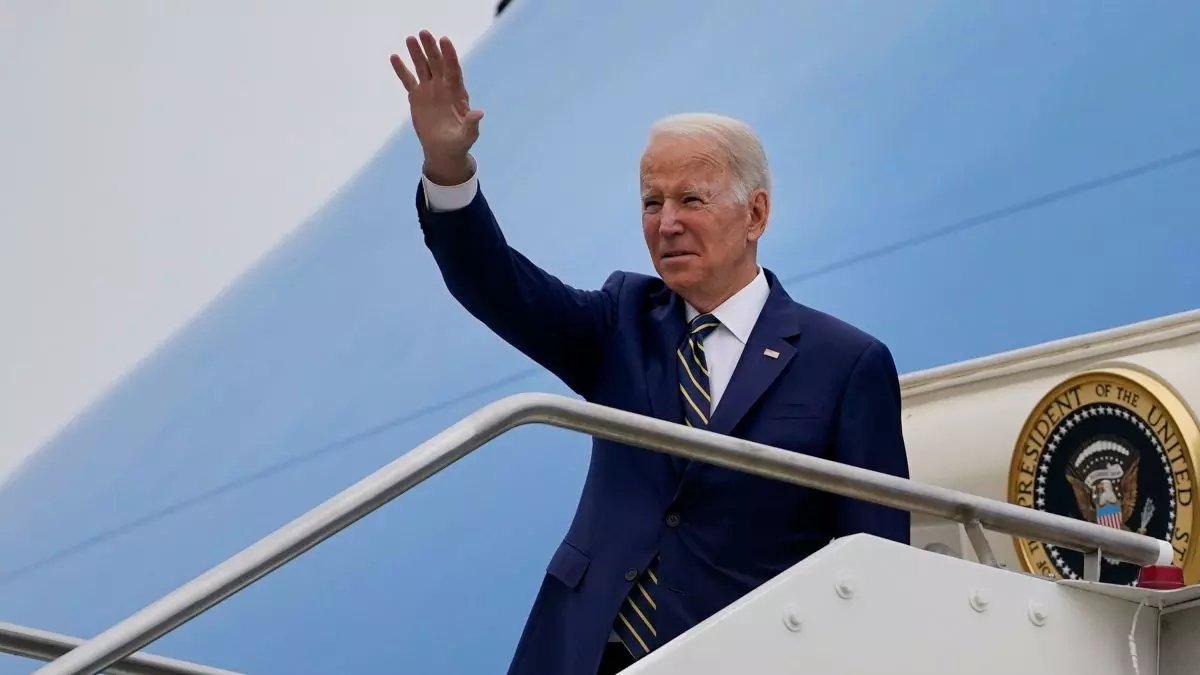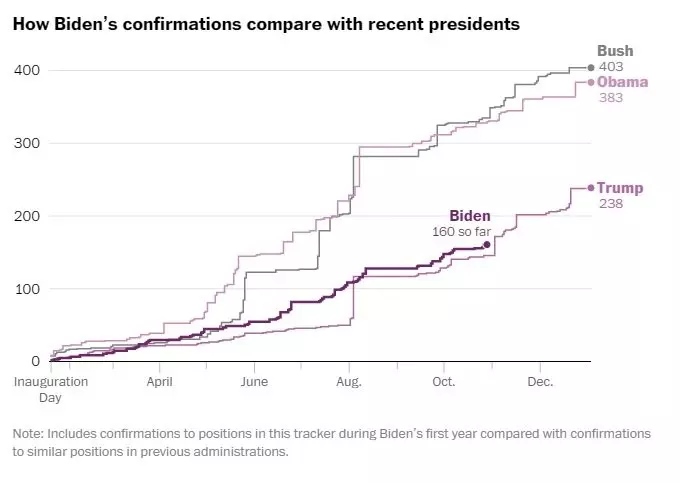Comments
- No comments found

One of the complaints fairly levelled against President Donald Trump was that, in a pure numerical sense and setting policy disagreements aside, his administration did a poor job of appointments.
There are about 4,000 jobs in the federal government that require presidential appointment, with about 1,200 of those jobs requiring Senate confirmation. The Trump administration was slow to fill these jobs. For example, the Economist magazine noticed the slow pace of Trump administration appointments back in July 2017 with an article titled, “Donald Trump’s missing government: Presidential lethargy, not Democratic obstinacy, is to blame.” By the end of the Trump administration, of the roughly 750 appointments requiring Senate confirmation, about one-third had no appointments at all.
How is the Biden administration doing? The nonprofit Partnership for Public Service together with the Washington Post maintain an ongoing tracker that keeps track of appointments to about 800 of the more prominent positions that need Senate confirmation. Here’s their figure showing confirmed appointments. So far, the Biden administration is quite similar to the Trump administration, both lagging well behind the two preceding administrations.

I’ll confess that this total number of required appointees seems crazy to me. My suspicion is that bill after bill specified a need for certain positions to be presidentially appointed, without anyone really keeping track of the general total. It would probably be sensible to cut back the number substantially. The only way this total number of appointments can possibly work is to have a president with an exceptionally deep bench of advisers, who in turn can draw on deep networks of their own. Thus, one might be unsurprised that political novice President Trump lacked the network to find a large number of nominees, while expecting that nominees would be easier to find for a Biden administration. But it hasn’t worked that way.
In the early 1980s during the Reagan administration, it was common to hear the slogan “personnel is policy.” Conversely, a lack of personnel will inhibit policy. When problems come along–from pandemics to trade, from supply chain shutdowns to foreign policy–and there is no political appointee in place, then the regular government workers in that department are left to muddle through as best they can, without a lot of direction and with strong incentives not to do anything innovative or creative that might either attract blame or end up contradicting whatever official policy line ultimately emerges A lack of personnel is a kind of policy, too.
Timothy Taylor is an American economist. He is managing editor of the Journal of Economic Perspectives, a quarterly academic journal produced at Macalester College and published by the American Economic Association. Taylor received his Bachelor of Arts degree from Haverford College and a master's degree in economics from Stanford University. At Stanford, he was winner of the award for excellent teaching in a large class (more than 30 students) given by the Associated Students of Stanford University. At Minnesota, he was named a Distinguished Lecturer by the Department of Economics and voted Teacher of the Year by the master's degree students at the Hubert H. Humphrey Institute of Public Affairs. Taylor has been a guest speaker for groups of teachers of high school economics, visiting diplomats from eastern Europe, talk-radio shows, and community groups. From 1989 to 1997, Professor Taylor wrote an economics opinion column for the San Jose Mercury-News. He has published multiple lectures on economics through The Teaching Company. With Rudolph Penner and Isabel Sawhill, he is co-author of Updating America's Social Contract (2000), whose first chapter provided an early radical centrist perspective, "An Agenda for the Radical Middle". Taylor is also the author of The Instant Economist: Everything You Need to Know About How the Economy Works, published by the Penguin Group in 2012. The fourth edition of Taylor's Principles of Economics textbook was published by Textbook Media in 2017.
Leave your comments
Post comment as a guest